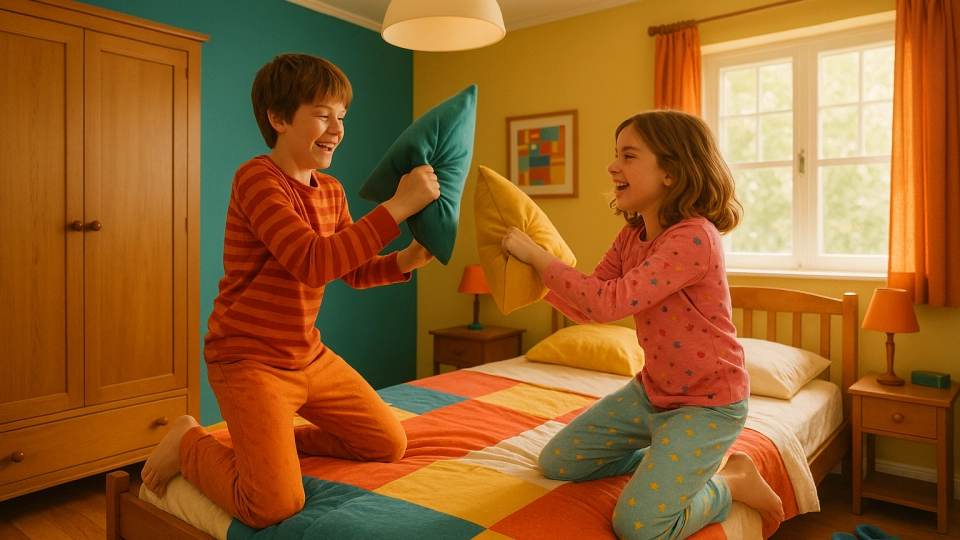Is it the right time to leave a child on their own?
Consider age, independence, and the ability to respond to different situations. Equally important factors include household conditions, the surrounding environment, and the individual parenting approach of the specific family.
By law, parents or legal guardians always have full responsibility for the safety and health of their children. Beyond the law, a child's psychological readiness plays a major role. Some children handle being alone better than others.
However, it is also good to trust the child and teach them independence. Too much control and constant supervision can lead to negative effects, such as reduced self-reliance, hesitation when making decisions, or a lack of self-confidence. A balanced approach therefore supports a child's healthy development and their readiness to handle different situations.
Leaving a child younger than 6–7 years unsupervised carries a very high risk. From 8–10 years, a child can be left at home alone for short periods, but only if they have safely mastered basic rules and crisis situations, if parent contact details are prepared, and if they are clearly instructed on what to do in various cases. It can help to agree with neighbors that the child is home alone so they can keep an eye on them if needed.
If an injury or property damage occurs during the parents' absence, the parent may be penalized for insufficient supervision. Always take into account your child's specific abilities and psychological maturity.
A child's age is a key factor when deciding on time without supervision. In general, the following is recommended:
- 6–8 years: A child can be unsupervised for at most a few minutes
- 9–12 years: A child can be more independent and manage 1–2 hours alone at home. Prior preparation and repeated checks are necessary.
- 13–15 years: A child can typically stay alone for several hours or longer.
- 15 years and older: Most teenagers handle being alone well.
Do not underestimate a child's personal maturity—every child is an individual, and age is only a rough guide.
Age alone does not decide whether a child can stay home alone. Watch for emotional readiness—does the child constantly need contact? How do they react to unusual situations?
Practical skills matter: The child must know how to use a phone, call the emergency number, and know the house rules (do not open the door to anyone, handling electrical appliances, etc.). If they hesitate with these skills, wait.
A positive indicator of readiness is a child's calm reaction to short periods alone, without anxiety or uncertainty. The child should proactively check in and know how to act in critical situations.
The decision to leave a child unsupervised should always be thoughtful, gradual, and made with the child's agreement. Remember to build independence and trust step by step.

